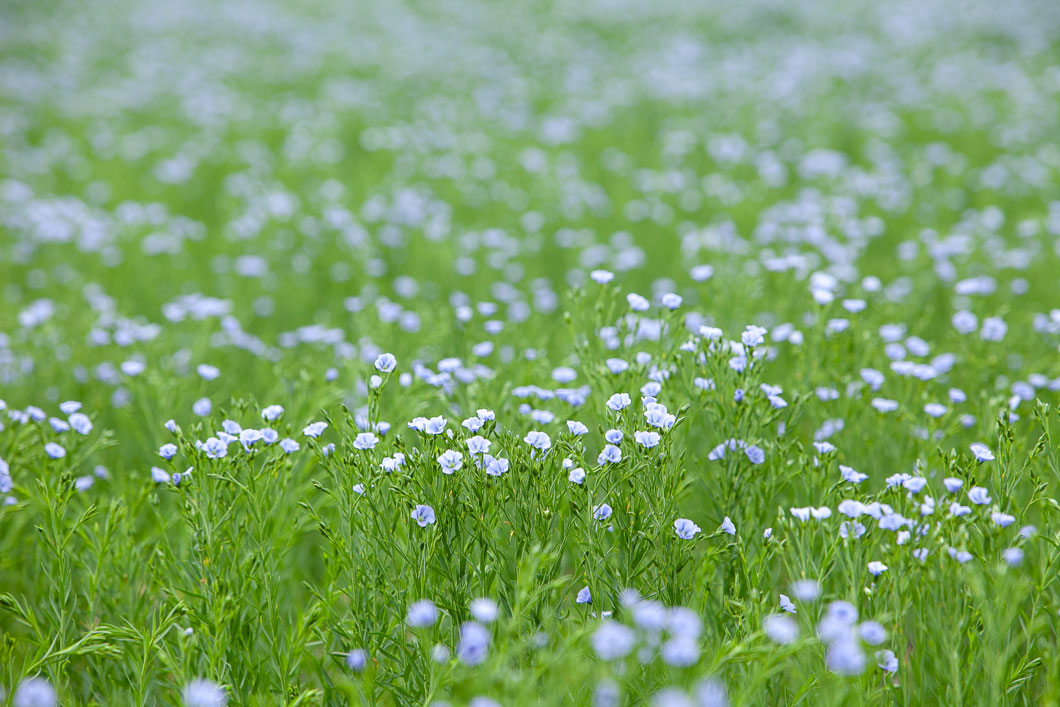Saskatoon, Saskatchewan, Canada
November 14, 2023
 What’s in a name? CDC Rowland Flax named to honour former flax breeder Dr. Gordon Rowland (photo: Christina Weese)
What’s in a name? CDC Rowland Flax named to honour former flax breeder Dr. Gordon Rowland (photo: Christina Weese)
Flax is grown on the Prairies for its seeds from which linseed oil is extracted to produce linoleum flooring, oilcloth, resins, inks, biofuels and some paints and stains. The seed contains fiber and produces nutritionally healthy oils, making it popular in food markets.
CDC Rowland flax was developed at the Crop Development Centre (CDC) in the College of Agriculture and Bioresources at the University of Saskatchewan. The variety originated in 2009 from a cross made between two breeding lines in the flax breeding and genetics program, and was selected for its large, brown and plump seeds.
CDC Rowland is a high yielding flax variety that is suitable to all soil zones of the Northern Prairies. On average, its yield is 12% higher than the historical variety, CDC Bethune. It has good standability and resists lodging. Its plumb seed size measures 17% larger than other flax varieties. CDC Rowland has a is resistant to flax rust and is moderately resistant to fusarium wilt and powdery mildew.

Dr. Gordon Rowland
When naming the variety, the CDC chose to honour the Centre’s first flax breeder, Dr. Gordon Rowland (PhD). Rowland oversaw the breeding and development of flax varieties at the CDC from 1974 until his retirement in 2006. During his successful career, Rowland released eleven flax cultivars, most notably CDC Bethune which accounted for more than 60 percent of Saskatchewan flax acreage from 2005 to 2009. For his work in flax and the measurable impact Dr. Rowland had in the agriculture sector, he was honored with the Canadian Seeds and Trade Association Outstanding Plant Breeding and Genetics award in 2011 and was inducted into the SK Agriculture Hall of Fame in 2013. These awards are in addition to the numerous Fellowships, excellence and honorary awards he received from the agriculture sector.
More information about CDC Rowland is available through the Government of Canada, Canadian Food Inspection Agency variety description.
https://inspection.canada.ca/english/plaveg/pbrpov/cropreport/fla/app00010928e.shtml
Or the variety technical sheet: https://cdnsciencepub.com/doi/10.1139/cjps-2020-0111